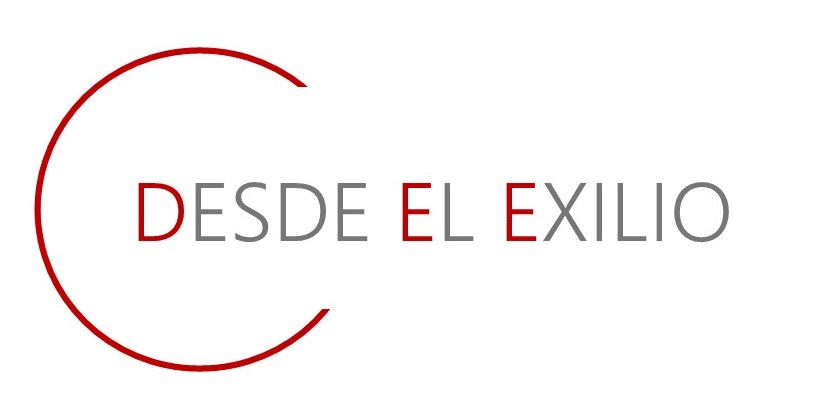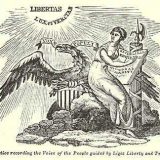Detrás de toda pasión se esconde una ambición. Tal vez en el artículo que les traigo (gracias Harturo) algunos lleguen a encontrar parte de las razones por las que súbitamente es interesante el ingreso de Turquía en la UE. A pesar de que, obviamente (sólo hay que mirar el mapa) el país es tan «europeo» como lo puede ser Marruecos.
Turkey’s No Casual Dining
The formidable task for our new ambassadorby Michael Rubin
National Review Online
December 12, 2005On December 1, Ross L. Wilson was sworn in as Washington’s newest ambassador to Turkey. As a former ambassador to Azerbaijan and career diplomat, Wilson is solid candidate for the new post. But his task is formidable. U.S.-Turkish relations may be quiet, but they remain strained. While pundits often cite bilateral disagreements arising from the March 1, 2003, vote against active Turkish participation in Iraq’s liberation and Turks complain about Washington’s subsequent inaction against PKK, U.S. concerns are deeper and center not upon Iraq, but rather on Prime Minister Recep Tayyip Erdogan’s accelerating assault on rule of law, transparency, and secularism. Erdogan may be elected, but his actions belie antipathy for the democratic process.
An Assault on the Rule-of-LawOn June 20, 2005, Nuri Ok, chief prosecutor of Turkey’s supreme court of appeals, challenged the Justice and Development party [AKP]’s bylaws which have enabled Erdogan to exert near dictatorial control over nominations for election candidates. On November 30, after several months of AKP stonewalling and refusal to change the unconstitutional provisions, Ok demanded a formal court censure of the ruling party.
Unfortunately, Erdogan’s disdain for the independent judiciary has become the rule rather than the exception. His government has ignored several successive supreme-court rulings in the Kent Bank case which declared illegal the government’s seizure and subsequent sale of a political opponent’s assets. Frustrated with such court rulings against his government, Erdogan has also moved to reduce the retirement age of judges so that he can replace 4,000 out of 9,000 professional civil servants with AKP party supporters.While the prime minister once trumpeted his government’s willingness to enter the European Union, he has since expressed similar disdain for European courts. After the European Court of Human Rights on November 10 upheld the headscarf ban in Turkish universities, he declared, «It is wrong that those who have no connection to this field [of religion] make such a decision… without consulting Islamic scholars.» His statements shocked multiple audiences. Not only did he give reason for European politicians to question his commitment to the European Union accession process but, the suggestion that religious law could trump state law rocked the Turkish establishment.
Erdogan has also launched an assault on the Turkish education system. Illegal Koran schools advertise openly in the Turkish press. Turkish investigative reporters say these unregulated schools’ curriculum seldom correlates to the traditional precepts of Islam, but rather embraces the Saudi-funded incitement common in the madrasas of Pakistan. While Turkish society has long respected religious education, Erdogan has unraveled the careful controls which long ensured that purveyors of religious hatred did not brainwash young students.
As his frustration grows with constitutional constraints on his agenda, many Turks say that their prime minister’s abuse of power has worsened. On October 14, 2005, Turkish police arrested Professor Yjcel Askin, rector of Yuzuncu Yil University in the eastern Turkish city of Van. Askin is well-known in Turkish academic circles for both antagonism to the PKK and efforts to emphasize the division between secular and religious education. The stated reason for his arrest was a question of a financial irregularity related to the purchase of medical equipment for the university. But the arrest followed months of government harassment. The Turkish police had earlier raided his home to seize illicit antiquities — only to find that he had permits for everything. The government’s subsequent decision to hold Askin and other university officers without bail was without precedent. Fifty university presidents protested the government’s actions. On November 13, another university officer committed suicide after languishing in prison for three months without a single court hearing, let alone a trial.
Erdogan’s assault on Turkey’s secular traditions has manifested itself in other ways. On October 9, the mainstream daily Cumhuriyet reported that the Ministry of Health sent «registry information forms» to hospital personnel demanding to know their religious sect. The classification scheme represents a dangerous erosion of the religious tolerance for which Turkey has long been known. In response to the AKP’s actions, the Turkish Physicians Union and the Istanbul Chamber of Physicians issued a joint press statement declaring, «They are recording the workers according to their religious beliefs and sects. [This] defies all clear definitions of the constitution on freedom of religion and conscience.» The concern is real. Erdogan’s administration has systematically discriminated against Turkey’s 15-million member Alevi community. The Alevis are a Sufi-influenced Islamic sect and, like the mainstream of Turkish society, and have a tradition of tolerance far broader than the teachings espoused by the AKP’s leadership. Despite the AKP’s claims to represent Turkish society, the establishment daily Milliyet reported that the party’s parliamentary delegation and leadership did not include a single Alevi.
Ordinary Turks — at least those living outside Istanbul — are feeling the heat. The government has not only moved to increase taxes on beer, but AKP-controlled municipalities have also moved to ban alcohol altogether. On November 23, opposition Republican People’s party [CHP] deputy leader Kemal Anadol said, «If you separate the areas where alcoholic beverages are sold…what you want is Tehran, not Luxembourg.»
Will Washington Let Turkey Slip Away?It is this atmosphere of challenges to the rule of law that will confront Wilson upon his arrival in Turkey. His task will be great. Tensions between Washington and Ankara have hurt both U.S. and Turkish interests. While Turkish anti-Americanism has grown rife, positive U.S. attitudes toward Turks and Turkish culture has remained constant. But indicators now suggest that this embrace may be weakening. Turkey was alone among regional countries in witnessing a decline in the number of U.S. students it hosted.
The long-term strategic partnership may never fully recover: U.S. strategic planners are increasingly looking to Romania and Georgia to compensate for dwindling confidence in Turkey’s commitment to security and rule of law. Meanwhile, the poor personal relationship between Erdogan and President George W. Bush undermines anti-PKK cooperation.
While it is in the interest of both countries to repair their relationship, Washington should not sacrifice commitment to rule of law. Nor should platitudes substitute for tough dialogue. Too many past and present U.S. officials, either out of misplaced etiquette or personal business interests, have downplayed concerns about the AKP. During a recent trip to Turkey, for example, one former Clinton-administration ambassador told AKP officials and an Islamic business association that Washington was not concerned about the influx of Islamist capital in Turkey. While he was speaking in his own private capacity, some Turkish officials wrongly assumed White House sanction for his statements.
The Bush administration has not helped the situation. On November 9, Assistant Secretary of State Daniel Fried said, «It seems to me that the development of the AKP into a democratic party of center-right orientation has mirrored and supported the development of Turkish political society as a whole in a liberal and democratic direction.» Many Turks interpreted his statement as a partisan endorsement of the AKP at a time when opposition parties are gaining ground.
While Turkish society is engaged in an increasingly urgent struggle to preserve rule of law against abuse-of-power, diplomatic platitudes can harm. The center of Washington’s policy toward Turkey should be support for its constitution, judiciary, and rule of law, no matter how chilly it may make Wilson’s lunches with the prime minister.
Michael Rubin, a resident scholar at the American Enterprise Institute is editor of the Middle East Quarterly.





Pues vamos apañados con Turquía.
La pregunta es qué se puede hacer para ayudar efectivamente a los muchos turcos que desean sinceramente una plena homologación entre su país y Europa, así como demostrar el máximo respeto posible por la dignidad nacional turca, pero sin acabar cometiendo un error de dimensiones colosales al intentar ingerir en la Europa política y económica a un país con credenciales todavía muy dudosas.
Ya sabemos lo que contestaría nuestro indómito presidente a Erdogan: «Thank you». ¿A qué? A todo.
Y ojo, que este señor Rubin, al igual que Daniel Pipes, milita a favor de la accesión turca a la UE. «How unprejudiced». Pero ciegos no están, eso es evidente.
Espero que se valore a dónde nos llevan los alianzadores de civilizaciones antidemocráticamente.